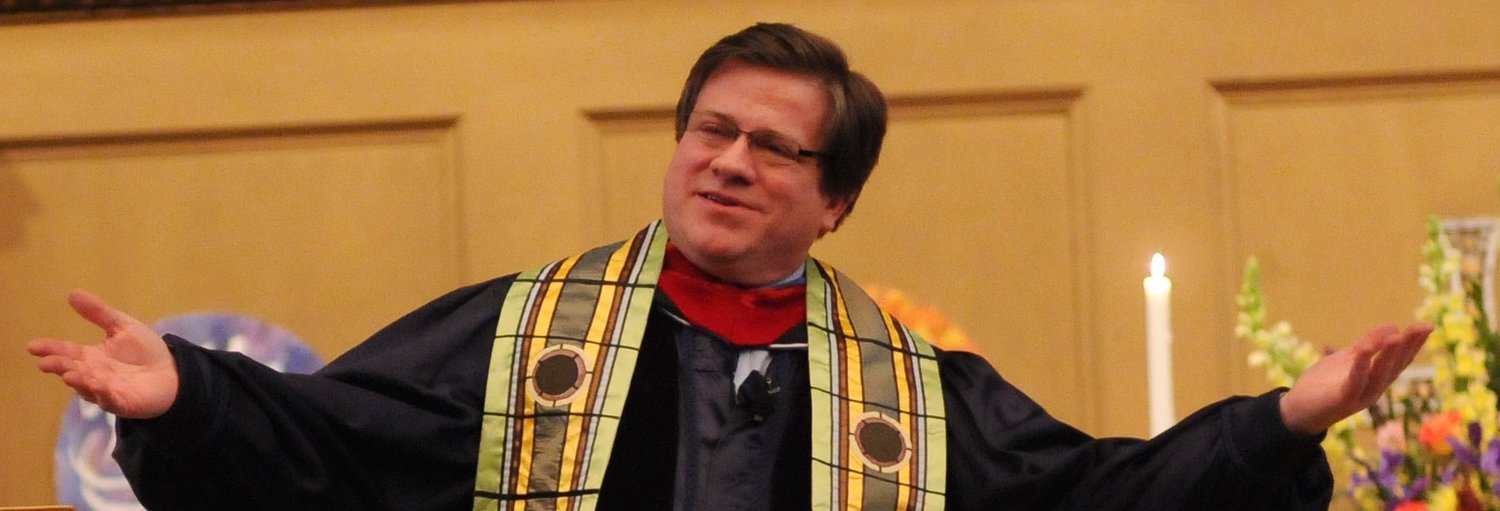For the Inward Journey, Day Seventeen
Strike the Rock Aright
. . . .There's magic all around us
in rocks and trees, and in the minds of men.
Deep hidden springs of magic.
He who strikes
the rock aright, may find them where he will.*
It is very easy to assume an attitude of indifference to the ordinary commonplace aspects of life. This is natural because constant exposure to experiences tends to deaden one’s sensitiveness to their meaning. Life does grow dingy on one's sleeve unless there is a constant awareness of the growing edge of one's experience. The mood of arrogance toward the ordinary person and the tendency to grovel in the presence of the high and powerful beset us all. This is due to the deep quest of the human spirit for status, for position, for security-rating.
I remember once meeting a most extraordinary man on a college campus where I was giving a series of lectures in religion. Each morning he sat in the front seat. He was disabled—he walked suspended between two huge crutches. At the close of the last lecture, he came up to me. “Mr. Thurman, you have been very kind to me during this week. I want to give you something. Will you come to my room this evening when you are through with your work?”
It was agreed.
In the interval I asked one of the students about him. I was told that he was an old fellow who earned his living by repairing shoes in a shop on the top of the hill. Some of the students referred to him simply as “Old Crip.” When I entered his room in the late evening, he was standing behind a chair supporting himself very deftly. “Mr. Thurman, do you like Shakespeare? What is your favorite play?” “Macbeth,” I replied; then without further ado, he read for me from memory the entire first act of Macbeth. And at my dictation, for over an hour, he read scene after scene from Shakespearean tragedies. He was just an old man earning his living by repairing shoes for college men who thought nothing of him.
There is magic all around us. It may be that the person with whom you live every day or with whom you work has, locked deep within, the answer to your own greatest need if you know how to “strike the rock aright.”
*From “Watchers of the Sky” from Collected Poems in One Volume by Alfred Noyes (1922)
(For the Inward Journey: the writings of Howard Thurman.
Selected by Anne Spencer Thurman. pages 55-56
Originally published in Deep is the Hunger)
The meditation journal Deep is the Hunger's subtitled “meditations for apostles of sensitiveness.” Thurman says that “The attempt is not to set forth a connected series of observations or reflections, but rather to throw a shaft of light on aspects of thought, of life, of religious experience, as they are encountered in the daily round.”
This intention reminds me of a lecture I once heard by the Mexican theologian María Pilar Aquino who introduced me to the thought of “the theology of daily life.” Central to this liberationist thought was viewing each human being, discovered in the practicality of their lives, relationships and responsibilities, as the subject of their own life, not the object of someone’s observation (and evaluation!) of them.
I think of the ways I have objectified so many people in my life. The distant politician who is acting in ways that I found inhumane, cruel, and unsupportable I can view with absolute disdain—but I turn them into objects of my scorn rather than the subjects responsible for their own action. I am troubled today by the places my heart-mind goes when I consider my anxiety and fear about the ways my country (and its people) are describing the state of affairs we inhabit. I am especially troubled by my thoughts about extreme actions. I turn people into effigies, wanted posters, objects that might be symbolically destroyed.
Can I see in the daily life of such a person the human being who needs liberation? Can I see the life that needs to be set free to recognize its own interrelationship with so many people who need to be free?
What about the people in my very own life that I reduce to less-than-fully-human? I have done it, and I do it. When I label someone a substance abuser, and discredit them as the subjects of their own lives (because '“they love the bottle more than they love me,” for example), have I somehow labelled them, controlled them, reduced their humanity . . . and missed the “magic all around us”?
